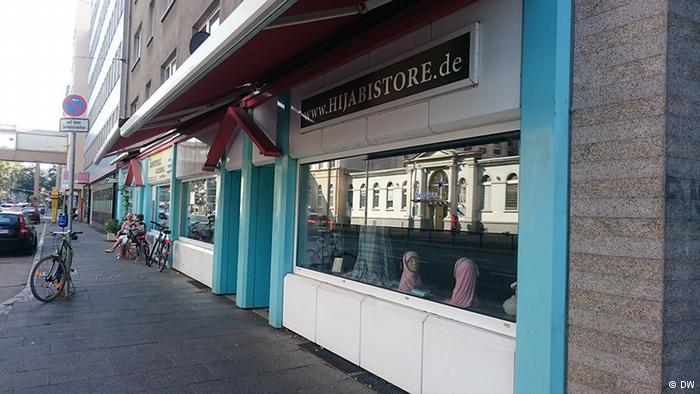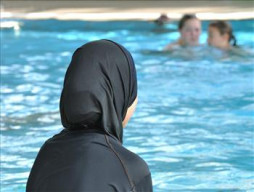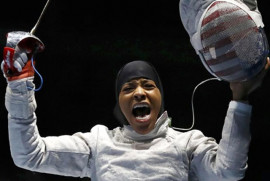
A Frankfurt store selling niqabs, burqas and hijabs has been accused of having links with Salafists.
Many say such stores promote an extremist view of Islam. “Stores selling niqabs and burqas have sprouted in Germany only in the last 10 or 15 years,” Susanne Schröter, an expert on Islamist feminism and extremism at the University of Frankfurt told DW. "Nowadays, one sees more women wearing the niqab also because German women want to dress up in this manner."
Switzerland halts citizenship process for Muslim students’ family
"This shop in Frankfurt, Hijabi, is linked on the one hand to Salafist consumer culture. Salafism is not just a religious or political movement, it's also a lifestyle. People who follow this ideology want their whole life to be shaped according to the Salafist utopia," she added.
Earlier this week, Germany's public broadcaster ARD ran a report on how stores like Hijabi and a similar one in Wuppertal, in the country's west, made women follow a more extremist version of Islam. “Wearing a burqa becomes a kind of rebellion in a country like Germany, where emotions are strong against the Muslim garment. Its wearers believe that obeying the laws of their God is much more important than the enemies they make because of their choice of clothing,” Schröter said.
Muslim fencer becomes first American athlete to compete at the Olympics wearing a hijab
"This is why these shops are so dangerous. They are part of a culture in which members want to express that they belong to this Islamist ideology. Patriarchy, anti-democratic thinking, support for violence - because they believe they live in a world which is anti-Muslim - are all part of this thinking," she said.
According to Schröter, these shops could help people join extremist groups that follow such beliefs and initiate buyers into Quran-reading and similar activities to influence mindsets. Hijabi's owner, Latifa Rouali's father Abdellatif, is a well-known Salafist in the southern and southwestern Rhine-Main-Sieg region. Rouali was a founder of the banned Dawa FFM, an organisation that called on believers to follow the Holy Quran. He is also known to have been closely linked with Pierre Vogel, who openly advocates the supremacy of Sharia - or Islamic law - over all earthly constitutions.
Norway hairdresser fined for turning away client in hijab
In 2014, Rouali set up a shop in central Frankfurt called Mekka. However, after receiving complaints from neighbors, the shop was forced to shut down. "They closed the business because they found out that the Mecca water he was selling was not from the holy city, but from Frankfurt's water supply," Schröter said. "Everyone can open a business as long as they are not selling or doing anything against the law," she concluded.























































COMMENTS
Comments are moderated and generally will be posted if they are on-topic and not abusive.
For more information, please see our Comments FAQ